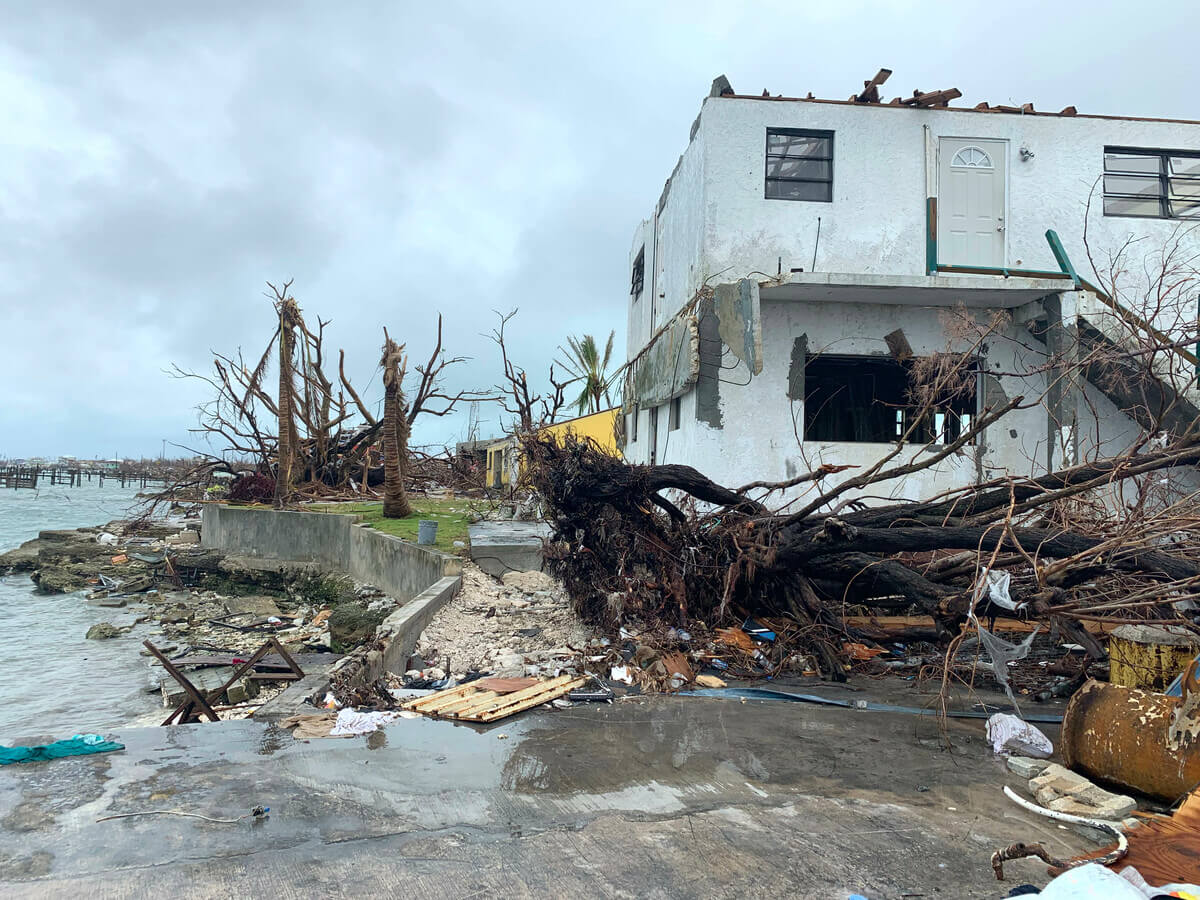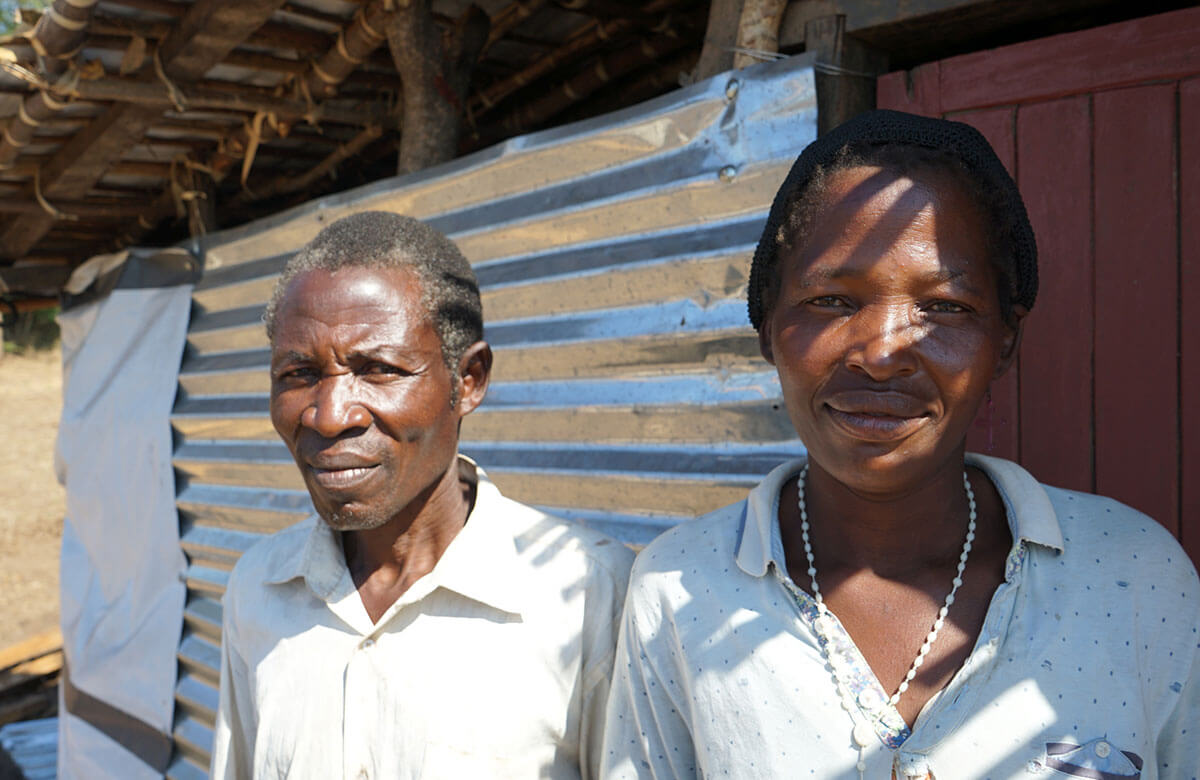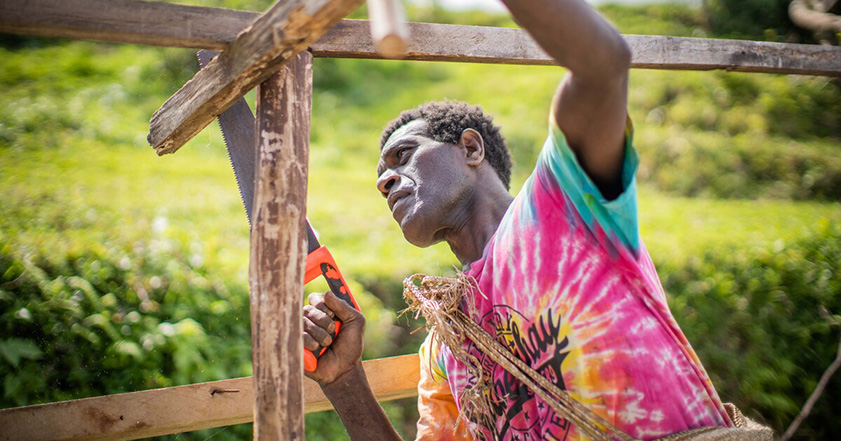Storytelling makes us human. Ever since we’ve had the means to communicate, stories have helped build and shape societies – to store memories, learn from mistakes, share wisdom… and to bring about change. This essential human impulse could be one route to resolving a humanitarian crisis – the climate crisis.
For so many of us, the reality of the climate emergency feels overwhelming and intangible. Others find it hard to believe. August’s IPCC report painted a shocking picture of rapid, intensifying, and irreversible damage to our planet.
Ahead of the G7 summit, ShelterBox revealed that climate-driven disasters could destroy 167 million homes by 2040. How can we begin to understand the scale of that problem? Can you picture a million homes? A thousand, even?
But perhaps you could imagine your street, your neighbours and their families suddenly uprooted and leaving everything they know behind.

Aftermath of Hurricane Dorian, Bahamas (2019). Climate-driven disasters destroy millions of homes every year.
Welcome to Tamesis Street
Last week we launched Tamesis Street: Thirty Authors Tell One Story of a Climate Disaster. This collaborative book unites writers, celebrities, ShelterBox supporters and people who’ve rebuilt their lives after disaster, to truly bring home the impact of a life-changing flood on just one community. (If this all sounds a bit earnest, it’s a gripping read too. That was important to us!)
At ShelterBox Book Club, we believe that stories can transport us to new places, cultures, and communities. They allow us to meet new people, discover their lives, and understand situations from another perspective.
And a new perspective on climate change is desperately needed. A BBC article on the human need for stories suggests that fictional narratives could hold the answer, as they provide more than pure escapism. It explains that ‘reading or hearing stories activates various areas of the cortex known to be involved in social and emotional processing, and the more people read fiction, the easier they find it to empathise with other people’. It also notes that the theme of cooperation – to solve problems and make decisions – dominates many of the most popular narratives worldwide.
If we’re to turn the tide on the human realities of climate change, empathy and cooperation will surely be the key.

Bringing it home
So why set our story on a fictional street in London? We shouldn’t need to have the floodwaters surging at our own doorsteps to demand change. The tragedy of this summer’s brutal floods in Germany rightly made headlines for days, yet similar disasters in the world’s poorest regions can go unreported. As Ugandan activist Vanessa Nakate says in her searing Afterword to Tamesis Street, ‘stories like these have already become routine in countries like mine’.
We felt it was important that our authors didn’t speak on behalf of an unfamiliar disaster or country. So we set our story in London, in an imagined future 30 years from now. With torrential rain swamping Tube stations just last week, suddenly that future doesn’t seem so far away.
We were also honoured to include the perspectives of Stephano and Mary, who lost their home to Cyclone Idai in Malawi, and Melrose, a survivor of Typhoon Goni in the Philippines. Their testimonies should be essential reading for everyone attending the COP26 conference this November.
Sheltering your children in the treetops from rising, crocodile-ridden waters should be consigned to fiction. For Stephano and Mary, it was terrifyingly real.

Stephano and Mary saw their Malawi home ripped away by Cylcone Idai (2019), one of the worst tropical storms on record to affect Africa.
The hope of an ending
One of the most overwhelming aspects of the climate crisis is we have no sense of if – or how – it will all end. Stories are inherently satisfying because they follow an arc and drive towards a conclusion, even if it’s not a happy one.
Once the world recognises the human catastrophe we’re facing, we can make a difference. ShelterBox doesn’t have all the answers, but we do know that shelter can provide the hope of recovery and a new beginning. That’s why we’re calling for more emergency shelter for communities bearing the immediate brunt of climate change, and for stronger, better adapted homes and warning systems to protect vulnerable families for the longer term.
As our CEO Sanj says,
At ShelterBox when we talk about disasters and climate change, we do so believing that we can make a difference and a happy ending is possible.
As for the residents of our fictional street? Well, you’ll have to read on to find out…
Reserve your FREE limited edition copy of Tamesis Street when you sign up for ShelterBox Book Club today.

